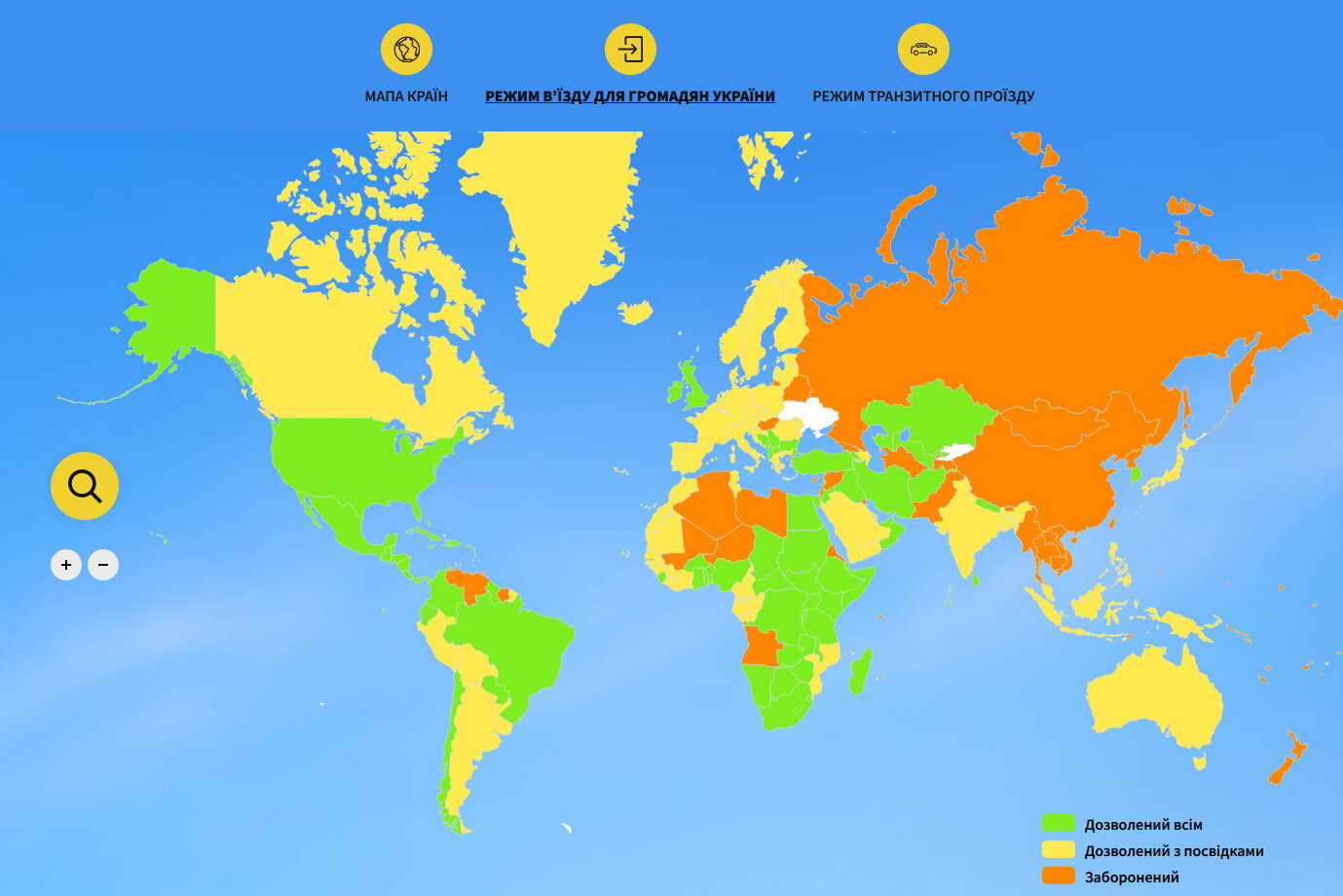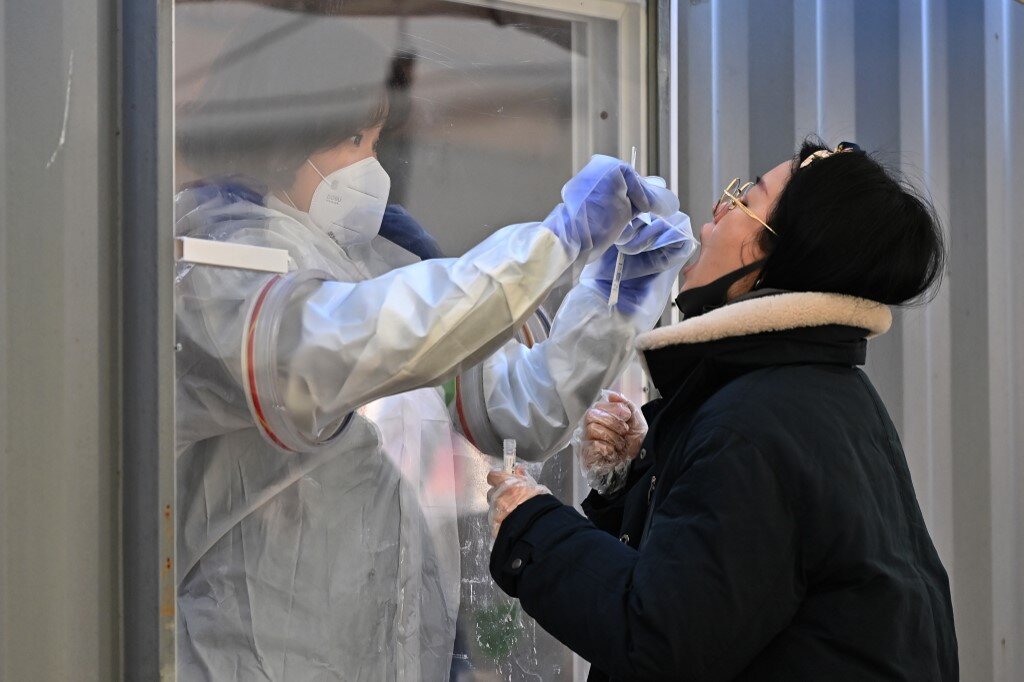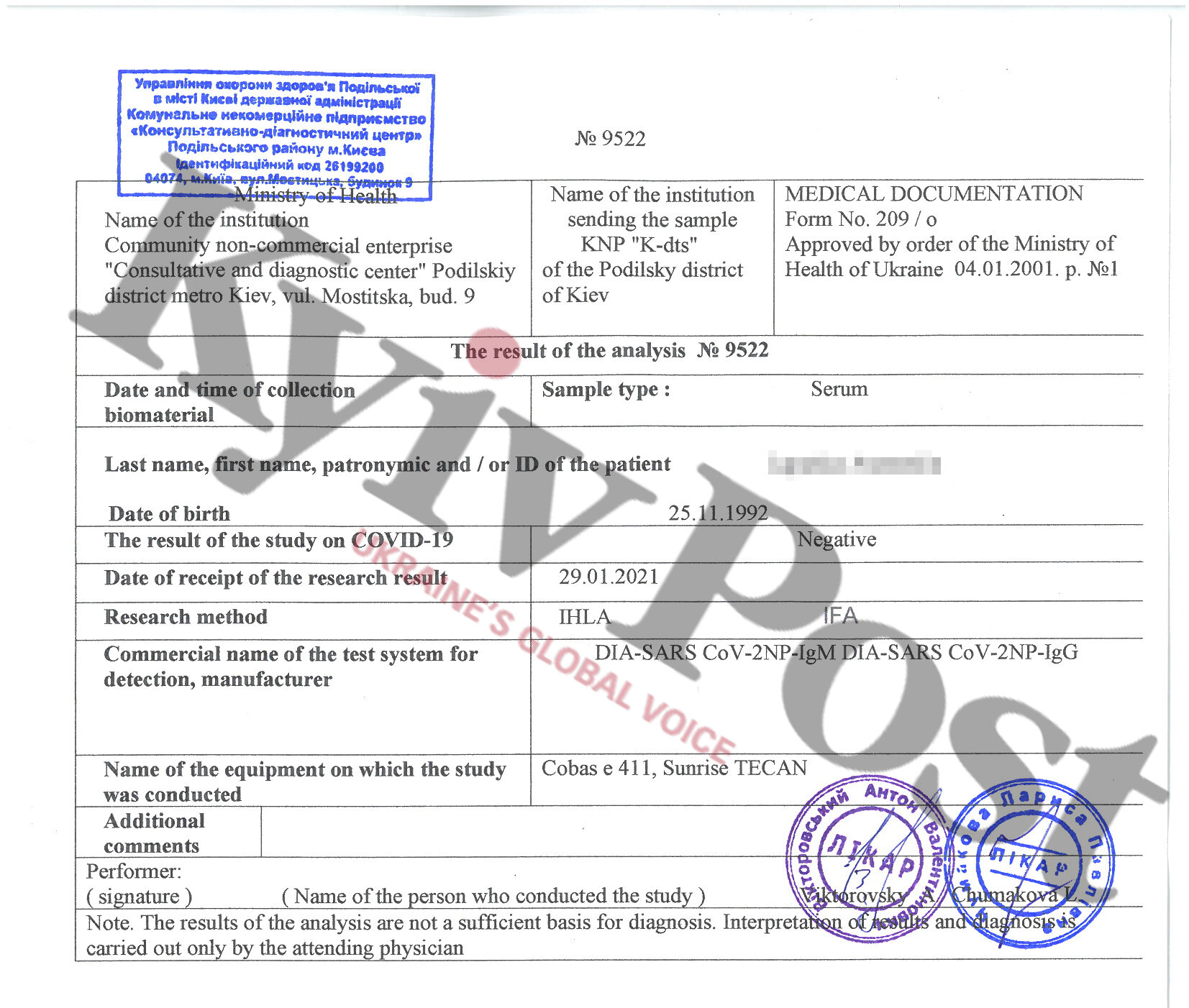It’s easy to buy nearly anything on the internet – even a negative COVID-19 test result.
Apparently, being formally COVID-free in Ukraine is just a Google search away.
Police and the media are warning about a growing number of people selling counterfeit negative COVID-19 test results that are relatively cheap and delivered to you the next day.
Ukrainian scammers prey on reckless travelers who must provide a negative test result when entering certain countries and those who want to save money on real testing.
But money is not the only factor – people also gravitate toward grifters when they mistrust legitimate testing, thinking they won’t get a trustworthy result anyway.
Traveling during the pandemic
Most of the customers for fake COVID-19 tests are travelers.
In 2020, over 11 million Ukrainians traveled to 123 countries around the world, according to the State Border Guard Service.
Currently, most countries around the world have their borders closed for Ukrainian tourists to curb the spread of the virus worldwide. But places like the Maldives, Egypt, Mexico, Turkey, Sri Lanka, United Arab Emirates and a couple of others allow tourists from Ukraine.
In most of those countries, all one has to do is buy medical insurance that covers COVID-19 related treatment and provide a negative PCR test result at arrival.

A map showcasing conditions of entry to different countries for Ukrainian travellers, created by the Consular Service Department of Ukraine’s Ministry of Foreign Affairs. Countries in green accept all citizens of Ukraine if they have a negative COVID-19 test result. Yellow countries don’t accept Ukrainian tourists, only permanent residents and other special groups. Orange countries don’t let in any travellers from Ukraine at all.
PCR, or polymerase chain reaction tests, detect the virus’ genetic material in human cells and show whether someone has an active coronavirus infection. It’s the most reliable way to detect the virus.
Antibody tests, also known as immunofluorescence tests or IFA, detect antibodies that develop as part of human immune response to the virus. According to the U.S. Food and Drug Administration, unlike PCRs, antibody tests cannot be used to diagnose an ongoing infection.
Hence, border security only accepts PCR tests.
State-financed hospitals in Ukraine offer free PCR testing only for people who show symptoms and have a referral from a physician. Due to high demand, many patients wait a week or more to receive the results of a free test after staying in a line for hours.
Many Ukrainians are not happy about this.
Natalia, a dance teacher from the southern city of Kherson, once bought a counterfeit negative test result for traveling purposes. She asked to conceal her full name to avoid prosecution for using forged documents.
“I don’t have a car so I’d have to stay outside the clinic in the cold for hours because the lines are that long, they stretch on the street,” she says, explaining her reasoning.
Moreover, free clinics take many days to come back with test results, and don’t offer them in English. Meanwhile, test results required for traveling have to be done in the last 24 to 72 hours, and be in English.
This leaves travelers with private laboratories that perform PCR tests in one or two days, but the costs range from Hr 700 to Hr 3,500.
Meanwhile, fraudsters offer fake tests significantly cheaper — for Hr 400-600.

A medical staff member wearing protective gear takes a swab from a visitor to test for the COVID-19 coronavirus at a temporary testing station outside a railway station in Seoul on Dec. 16, 2020 as South Korea ramps up coronavirus checks with 150 temporary testing stations erected nationwide amid a surge in infection cases. (AFP)
Online testing
Forging official documents is enough to end up in prison for five years in Ukraine.
But this doesn’t seem to scare illegal suppliers who operate online, overtly offering medical certificates for sale, including negative PCR tests.
A Kyiv Post reporter reached out to “sicklist.com.ua” and “medspravki.org.ua” – two of the many websites that sell forged medical documents, pretending to need a negative test certificate.
Both websites sell a negative PCR test result for Hr 400 in Ukrainian, or Hr 600 in English. The next-day delivery via Nova Poshta, a popular delivery service, adds some Hr 50 to the price.
Two different operators gave the reporter similar instructions on the phone – “send us your name via email and pay for the package when it arrives the next day.”
“It will have all the necessary signatures and seals. We’ve had many tourists order these, no one had any issues,” one of the operators assured.
Both websites appear to be part of the same business. Two operators texted the reporter the same email address from the same phone number.
The next day, two packages with fake certificates arrived, posted by the same man from somewhere in Kyiv. The payment was processed by Nova Poshta.
Nova Poshta’s press service told the Kyiv Post that its employees “can’t verify whether documents sent via its services are authentic, and don’t have to do so.”
The packages were posted by an individual entrepreneur named Andriy Samsonenko. According to a public registry, his business is “retail via Internet and postal services.” The Kyiv Post tried calling his number but it was inactive.
Fake and no good
The packages contained “documents” that were far from real PCR test results.
Instead, the scammers sent negative IFAs – antibody tests, which are not accepted by border guards.
Grifters didn’t see this as a problem, however.
“There are two testing methods, and we are just using a more serious one,” the operator said confidently when asked about the mix-up. “We’ve had many people order these and they’ve always been accepted (by border guards).”
The problems with the “certificate” didn’t end there.
A real PCR test result would have the individual’s passport ID, as well as the date and time when the test was done. Documents received by the Kyiv Post had neither.
They also didn’t have a QR code to prove authenticity – a recently implemented requirement to enter many countries.
Two forged certificates had the seal of a real public hospital in Kyiv. Its address and identification code matched official online records.
The documents also had two seals with doctors’ names, which were also signed by hand. But no doctors by that name work there, the hospital’s management told the Kyiv Post.
The seal doesn’t necessarily imply the hospital’s connection to the scheme. In Ukraine, it is as easy to illegally get a fake seal as it is to forge a medical certificate. Again, this took just one google search.
Alyona Mazurenko, the hospital’s deputy director, said a criminal investigation into the matter has already been initiated but she declined to comment further.
Risks worth taking?
Among the reasons that push Ukrainians to take the risk and buy fake certificates are high prices for tests and mistrust in the quality of testing.
Kherson dance teacher Natalia is one of the many Ukrainians who find COVID-19 testing results arbitrary and refuse to pay thousands of hryvnias again and again.
“It’s not solely about money, but rather the fact that test results aren’t reliable,” Natalia told the Kyiv Post.
Natalia says that her friend had to give up a vacation in Egypt because she got a positive PCR test result before leaving. On the next day, in another clinic, she tested negative.
Mistakes indeed happen. Only some 70% of all PCR tests show the correct results, according to Deputy Health Minister Viktor Lyashko.
So when Natalia’s seemingly healthy relatives tested positive before flying to Ukraine from Russia, she bought fake negative tests for them.
“I am a lawful citizen,” Natalia says. “But what should healthy people do, when they risk losing time and money?”
The authorities evidently don’t go after the sellers of fake certificates.
Back in September, after Ukrainian media first reported that fake COVID-19 test results are sold online, Health Minister Maksym Stepanov called upon the police to investigate these websites.
“This is very serious,” he said at a briefing. “It’s unacceptable and shouldn’t exist in our country.”
Yet four months later, the trade of fake COVID-19 test results goes on freely in Ukraine.





